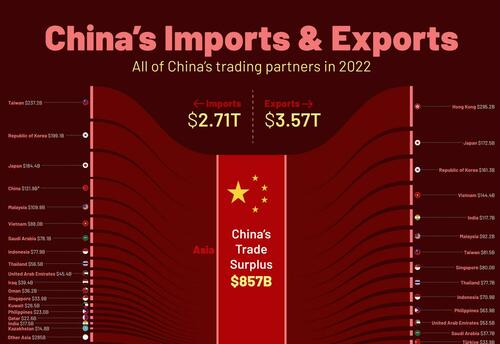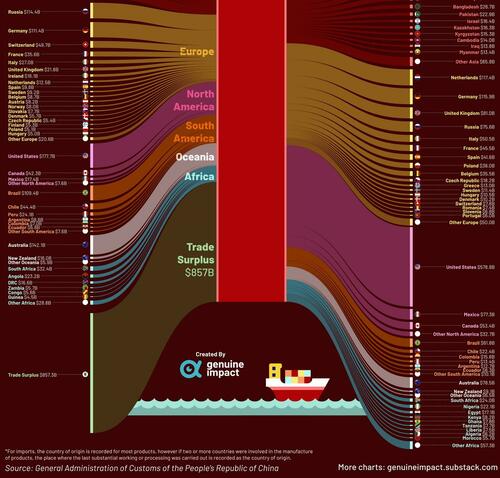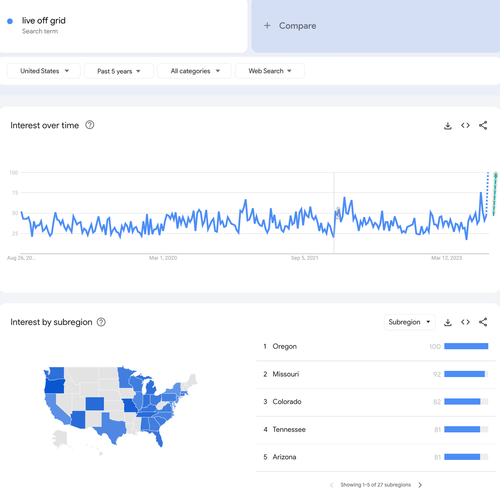Not All Legislators Use The Poor And Minorities For Political Gain
Authored by Dave Trabert via RealClear Wire,
Hypocrisy — claiming to have beliefs to which one’s behavior does not conform — has long been a defining characteristic of many politicians. But a few brave souls recently have bucked the official party line to stand up for their beliefs and constituents.
Georgia state legislator Mesha Mainor recently announced she is leaving the Democrat party to become a Republican, saying, “For far too long, the Democrat Party has gotten away with using and abusing the black community. For decades, the Democrat Party has received the support of more than 90% of the black community. And what do we have to show for it? I represent a solidly blue district in the city of Atlanta. This isn’t a political decision for me. It’s a moral one.”
Minor says her Democrat colleagues crucified her when she decided to stand up for disadvantaged children in support of school choice.
Kansas Democrat Marvin Robinson hasn’t changed party affiliation, but he is taking a lot of abuse from Democrats for supporting school choice for disadvantaged kids and protecting biological women’s right to compete in the Fairness in Women’s Sports Act. He says one female Democrat in the Legislature told him he should die.
Mainor says, “The most dangerous thing to the Democrat Party is a black person with a mind of their own.”
Kansas Democrats also pressure members to vote against children and for the unions.
Rep. Brad Boyd, an Olathe, Kansas Democrat who serves on the Olathe School Board, says school choice “targets black and brown kids, who can’t afford to attend some of these prestigious private institutions when we take money away from public schools.”
School choice programs do target minorities and low-income students, but quite the opposite of how Boyd contends. First, seven of the eight studies on the effect of choice programs on integration found positive impacts; the other showed no visible impact. That’s because minorities comprise a disproportionate share of student enrollment in choice programs. Second, most studies show that public school students have better outcomes after the introduction of choice programs.
Despite these irrefutable facts, Rep. Boyd and other choice opponents want to keep students trapped in public schools and condemn them to a lifetime of underachievement because that is the will of the teacher unions and other education officials. Only 13% of Black high school students in Boyd’s Olathe district are proficient in math, and more than half are below grade level.
Shockingly low proficiency for Black students isn’t just a Kansas issue; it runs rampant nationwide. The 2022 National Assessment of Educational Progress (NAEP) shows 62% of Black eighth-graders are below basic in math, and only 9% are proficient, for example.
Kansas Republican Mark Schreiber justifies his opposition to choice by saying the state should focus on providing more early childhood education programs. That might seem plausible at face value, but people like Schreiber who are familiar with the workings of the Kansas public school system know that won’t help low-income kids. Legislators have provided more than $5 billion in incremental funding to help those kids since 2005, but state audits consistently find that public school officials refuse to spend that money as state law requires. And the State Board of Education lets them get away with it.
Kansas legislators who oppose school choice know that the public system is consciously leaving behind poor kids in general and Black students in particular, but they refuse to talk about it. State Rep. Valdenia Winn (D-Wyandotte) sees it firsthand as a member of the Kansas City, Kansas, school board, which refuses to follow state law on spending at-risk funding and conducting student needs assessments. Sill, she contends that choice would “kill public education.”
Choice has existed in states like Florida and Arizona for decades and has not ‘killed’ public education. Just look at 4th-grade reading results for low-income kids. Florida students were trailing the national average in 1998; today, they have the highest proficiency level in the nation. Arizona students were three points below the national average, but now they meet the national average.
Politicians know that the public education system harms the low-income families they purport to represent and who would benefit from school choice. Yet they use them as pawns to protect the party and institutional interests.
School choice is perhaps the most bipartisan issue in the nation today, with solid support from parents of all political persuasions. Legislators in both parties should stop protecting education systems and pass universal school choice in every state so that students can get a good education and succeed in life.
Dave Trabert is CEO of Kansas Policy Institute, a nonprofit research and education organization that promotes economic and educational freedom and protects constitutional rights.
Tyler Durden
Thu, 08/24/2023 – 20:40
via ZeroHedge News https://ift.tt/dFpKw3J Tyler Durden



 Note: For products manufactured in two or more countries, China records the place where the last substantial working or processing occurred as the place of origin, including China itself.
Note: For products manufactured in two or more countries, China records the place where the last substantial working or processing occurred as the place of origin, including China itself. United States
United States Hong Kong
Hong Kong Netherlands
Netherlands India
India Mexico
Mexico United Kingdom
United Kingdom Vietnam
Vietnam Singapore
Singapore Philippines
Philippines Poland
Poland Spain
Spain Türkiye
Türkiye Belgium
Belgium Bangladesh
Bangladesh Italy
Italy Thailand
Thailand Nigeria
Nigeria Pakistan
Pakistan Egypt
Egypt Kyrgyzstan
Kyrgyzstan Czechia
Czechia Cambodia
Cambodia Greece
Greece Panama
Panama Canada
Canada France
France Colombia
Colombia United Arab Emirates
United Arab Emirates Kenya
Kenya Liberia
Liberia Israel
Israel Tanzania
Tanzania Slovenia
Slovenia Ghana
Ghana Hungary
Hungary Uzbekistan
Uzbekistan Algeria
Algeria Jordan
Jordan Morocco
Morocco Germany
Germany Denmark
Denmark Romania
Romania Argentina
Argentina Macao
Macao Guatemala
Guatemala Dominican Republic
Dominican Republic Senegal
Senegal Marshall Islands
Marshall Islands Sri Lanka
Sri Lanka Djibouti
Djibouti Iran
Iran Togo
Togo Portugal
Portugal Cote d’Ivoire
Cote d’Ivoire Cameroon
Cameroon Lebanon
Lebanon Sweden
Sweden Venezuela
Venezuela Yemen
Yemen Croatia
Croatia Mozambique
Mozambique Myanmar
Myanmar Tajikistan
Tajikistan Paraguay
Paraguay Ethiopia
Ethiopia Lithuania
Lithuania Nepal
Nepal Tunisia
Tunisia Bulgaria
Bulgaria Honduras
Honduras Bahrain
Bahrain Kazakhstan
Kazakhstan Belarus
Belarus Benin
Benin El Salvador
El Salvador Malta
Malta Sudan
Sudan Cyprus
Cyprus Georgia
Georgia Somalia
Somalia Azerbaijan
Azerbaijan Jamaica
Jamaica Uganda
Uganda Mauritius
Mauritius Serbia
Serbia Madagascar
Madagascar Korea, DPR
Korea, DPR Nicaragua
Nicaragua Estonia
Estonia Latvia
Latvia Haiti
Haiti Albania
Albania Afghanistan
Afghanistan Mali
Mali Fiji
Fiji Maldives
Maldives Syria
Syria Gambia
Gambia Burkina Faso
Burkina Faso Bahamas
Bahamas Niger
Niger Costa Rica
Costa Rica Rwanda
Rwanda Belize
Belize Suriname
Suriname Malawi
Malawi Réunion
Réunion Luxembourg
Luxembourg Bolivia
Bolivia Montenegro
Montenegro Bhutan
Bhutan Palestine
Palestine French Polynesia
French Polynesia Timor-Leste
Timor-Leste Barbados
Barbados Moldova
Moldova Samoa
Samoa Iceland
Iceland British Virgin Islands
British Virgin Islands Burundi
Burundi Other Oceanian Territories
Other Oceanian Territories Antigua and Barbuda
Antigua and Barbuda Seychelles
Seychelles Cabo Verde
Cabo Verde Vanuatu
Vanuatu Bermuda
Bermuda Eswatini
Eswatini Guadeloupe
Guadeloupe Comoros
Comoros Aruba
Aruba Bosnia and Herzegovina
Bosnia and Herzegovina Curaçao
Curaçao Mayotte
Mayotte Guinea-Bissau
Guinea-Bissau Tonga
Tonga North Macedonia
North Macedonia Cayman Islands
Cayman Islands Other Latin American Territories
Other Latin American Territories Palau
Palau Martinique
Martinique Kiribati
Kiribati French Guiana
French Guiana Lesotho
Lesotho Saint Lucia
Saint Lucia Dominica
Dominica Tuvalu
Tuvalu Federated States of Micronesia
Federated States of Micronesia Central African Republic
Central African Republic Bonaire, Sint Eustatius, and Saba
Bonaire, Sint Eustatius, and Saba Grenada
Grenada Andorra
Andorra Saint Vincent and the Grenadines
Saint Vincent and the Grenadines Gibraltar
Gibraltar Sao Tome and Principe
Sao Tome and Principe Other European Territories
Other European Territories Saint Kitts and Nevis
Saint Kitts and Nevis Nauru
Nauru Cook Islands
Cook Islands Turks and Caicos Islands
Turks and Caicos Islands Saint Martin
Saint Martin San Marino
San Marino Canary Islands
Canary Islands Wallis and Futuna
Wallis and Futuna Norfolk Island
Norfolk Island Western Sahara
Western Sahara Montserrat
Montserrat Ceuta
Ceuta Holy See
Holy See Saint Pierre and Miquelon
Saint Pierre and Miquelon Monaco
Monaco Cuba
Cuba Namibia
Namibia South Sudan
South Sudan Solomon Islands
Solomon Islands Faroe Islands
Faroe Islands Liechtenstein
Liechtenstein Botswana
Botswana Zimbabwe
Zimbabwe Sierra Leone
Sierra Leone Trinidad and Tobago
Trinidad and Tobago Mauritania
Mauritania Armenia
Armenia Eritrea
Eritrea Puerto Rico
Puerto Rico Greenland
Greenland Ecuador
Ecuador Libya
Libya Finland
Finland Guyana
Guyana Chad
Chad Ukraine
Ukraine Laos
Laos Equatorial Guinea
Equatorial Guinea Brunei
Brunei Uruguay
Uruguay New Caledonia
New Caledonia Guinea
Guinea Papua New Guinea
Papua New Guinea Norway
Norway Austria
Austria Slovakia
Slovakia Gabon
Gabon Congo
Congo Zambia
Zambia Mongolia
Mongolia New Zealand
New Zealand Indonesia
Indonesia South Africa
South Africa Turkmenistan
Turkmenistan Peru
Peru Democratic Republic of Congo
Democratic Republic of Congo Japan
Japan Ireland
Ireland Malaysia
Malaysia Qatar
Qatar Angola
Angola Kuwait
Kuwait Chile
Chile Iraq
Iraq Oman
Oman Republic of Korea
Republic of Korea Russia
Russia Saudi Arabia
Saudi Arabia Switzerland
Switzerland Brazil
Brazil Australia
Australia China
China Taiwan
Taiwan


 BREAKING: President Trump has arrived at the Fulton County Jail.
BREAKING: President Trump has arrived at the Fulton County Jail. 






